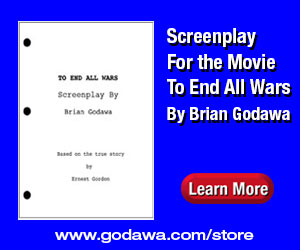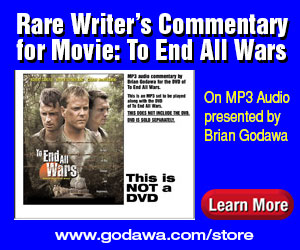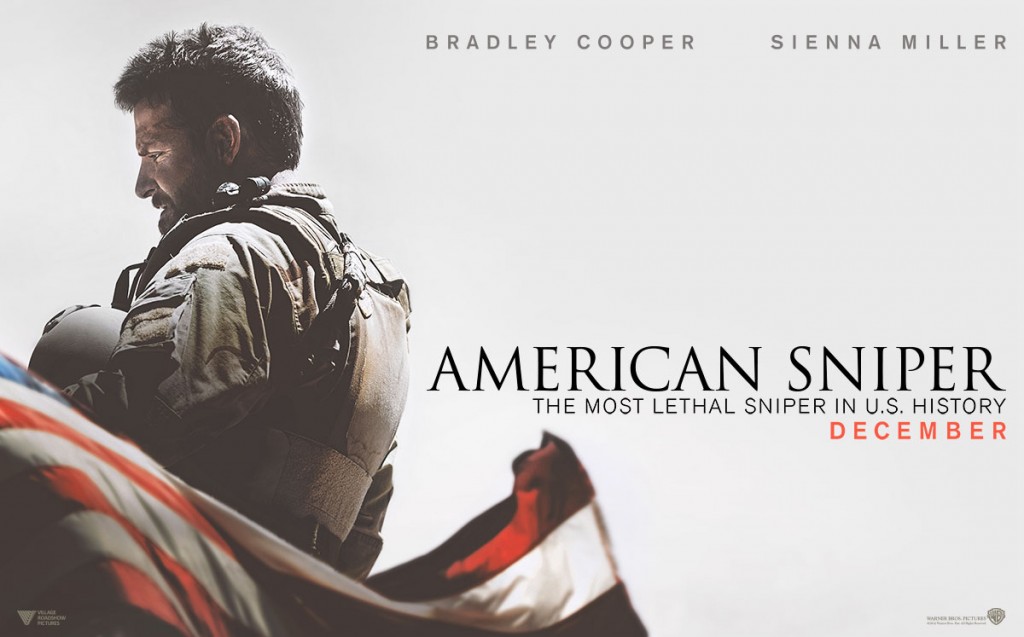The true story of Chris Kyle, the most lethal sniper in American military history.
Liberals and Leftists are gonna hate this movie because it’s pro-American, pro-military, depicts radical Islam accurately, makes a hero out of a gun-toting sniper, and does not judge the Iraq War as wrong. But putting such knee-jerk bigotry and simplistic politicization aside, this movie is morally good, profoundly true, and aesthetically beautiful.
Yes, killing evil people who deserve to die is good, true and beautiful.
In a decade of anti-American cynical Hollywood movies about the war against radical Islam, Clint Eastwood rises above the crowd again with a complex and nuanced portrayal of a quintessential American cowboy (complete with Southern drawl and superb performance by Bradley Cooper) who embodies the core values of middle America and becomes a humble patriotic hero for our cynical times.
That means it won’t win any Oscars for sure.
There are three kinds of people in this world; sheep who just live their lives without much awareness of the danger around them, wolves who seek to hurt those sheep, and sheepdogs who protect the sheep. This is the metaphor told to a very young Chris as a child by his strict father, who proceeds to demand his sons be sheepdogs. He concludes that if either of them turns out to be a wolf, he is gonna kick their ass.
 This kind of manly patriarchal firmness is deplored by today’s wimpy metrosexual egalitarian culture as “child abuse,” but it embodies America’s traditional cultural values of a firm but loving righteousness—the kind of righteousness that protects our world from totalitarian evil. And it sets up a profound context and understanding not merely for Kyle’s life that follows, but for America as the world’s sheepdog—not perfect or without fault, not without damage, but true and good.
This kind of manly patriarchal firmness is deplored by today’s wimpy metrosexual egalitarian culture as “child abuse,” but it embodies America’s traditional cultural values of a firm but loving righteousness—the kind of righteousness that protects our world from totalitarian evil. And it sets up a profound context and understanding not merely for Kyle’s life that follows, but for America as the world’s sheepdog—not perfect or without fault, not without damage, but true and good.
Ironically, that very egalitarian liberalism that also detests Kyle’s dad for “clinging to God and guns” has encouraged our culture of mobs, child violence and school shootings because of its coddling of criminals, moral lawlessness and girlie boy indoctrination. In fact, the movie even makes the point that Kyle’s lack of zeal for his spiritual upbringing with the Bible may be part of his own personal troubles. Some goodness and truth actually does get through the Hollywood censors.
Chris is quite literally an American cowboy who receives the call to join the military when he learns about the attacks of radical Islam on American facilities around the world. He tells his future wife when he meets her that he is a Marine because he believes America is the greatest nation on the earth and he wants to fight to protect freedom.
Such sentiments these days are portrayed with cynical irony in most movies, but in the hands of Eastwood, it becomes the profound nuanced motivation of a young naïve man that will be tested and matured through his experience. As a citizen protected from the evil, he can only be driven by a higher cause, but he will learn the precious personal value of his fellow sheepdogs and the sheep he protects.
Most war movies these days, with the possible exception of Fury, seek to subvert the motivation of “higher cause” and “freedom” with a standard predictable theme that “it’s not about fighting for country or cause, it’s about the guy right next to you.” In fact, you will virtually hear that kind of statement at some point in most war movies.
This naïve liberal attempt to discredit “country and cause” as dangerous nationalism or some other simplistic politicized rhetoric, and to reduce transcendent morality to mere personal group identity has no place in Eastwood’s complex exploration of justice. Kyle begins his journey with a higher cause, but he ends it with a ministry to those men who suffer physically from their protection of freedom in VA hospitals.
Kyle visits a psychiatrist when he returns from the war for the last time. The doctor assumes he is suffering PTSD and asks him the shallow cliché line about whether he regrets some of the things he did in the war. Kyle says absolutely not. That he is ready to answer before God for every shot he made. Those people deserved to die and he was proud to protect Marines from them and to fight for freedom. What he was being bothered about was all the guys he could not save. In fact, in the story, Kyle even gets down from his sniper’s perch and joins the men on the ground because he felt too removed from the action.
Kyle remains devoted to the higher cause, but he now cares for the individuals who are the participants in that cause. It was not Post Traumatic Stress Syndrome that this good man suffered from, but Post-Evil Sheepdog Syndrome. He finds his redemption in realizing he can be of help to wounded vets, the men who weren’t saved.
 Through this positive portrayal of fighting for a just cause, Kyle’s journey is not without self reflection, and Eastwood does not capitulate to simplistic or narrow-minded jingoism. His is a mature patriotism that acknowledges the damage that fighting such deeply violent evil can bring upon a righteous soul.
Through this positive portrayal of fighting for a just cause, Kyle’s journey is not without self reflection, and Eastwood does not capitulate to simplistic or narrow-minded jingoism. His is a mature patriotism that acknowledges the damage that fighting such deeply violent evil can bring upon a righteous soul.
Kyle wrestles with various sniper situations, such as whether or not to shoot a small child who is about to use a grenade launcher against a group of Marines. Even in a moment of such righteous killing, Kyle does not want to shoot a child (or a revolutionary mother for that matter). He values their lives even as they are seeking to end his.
The Hurt Locker, this is not.
No matter how just a war is, no matter how righteous you are in killing evil people who deserve to die, no one is undamaged by the effects of totalitarian evil like Islam and its radical wings. Which is why we cannot leave such evil alone or deny it exists, as much of the media and America’s current administration is doing.
The sheepdog bears the damage of these wolves with grace and honor. Because someone must bear the effects of evil for the sheep who cannot. And that is why only sheepdogs can understand and fully embrace their duty for freedom, God and country.

